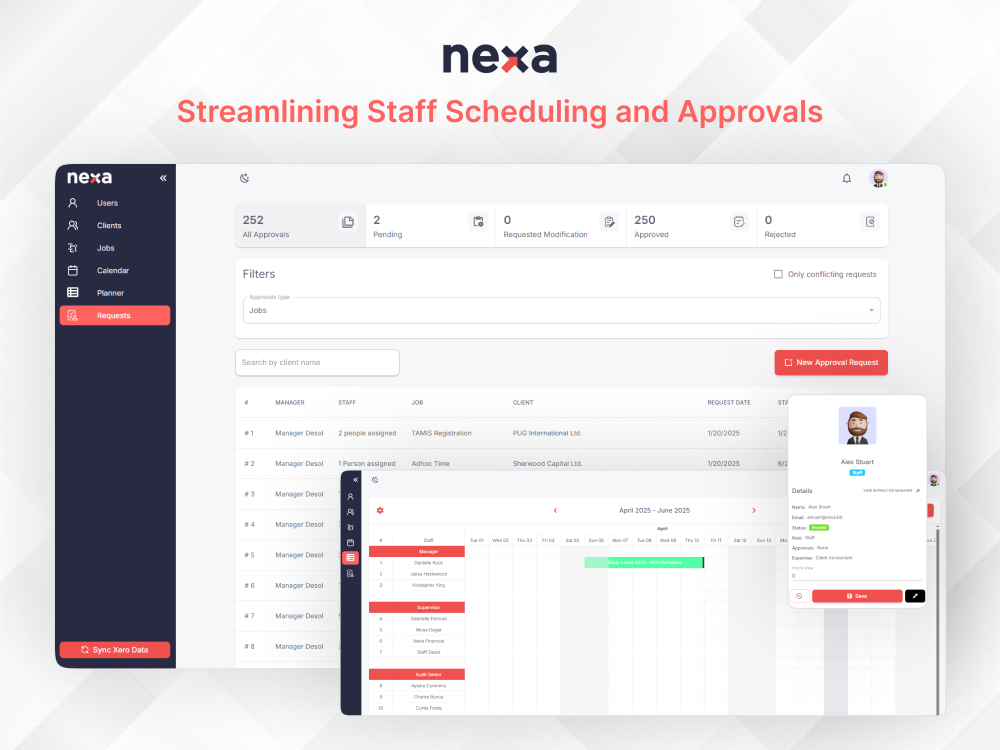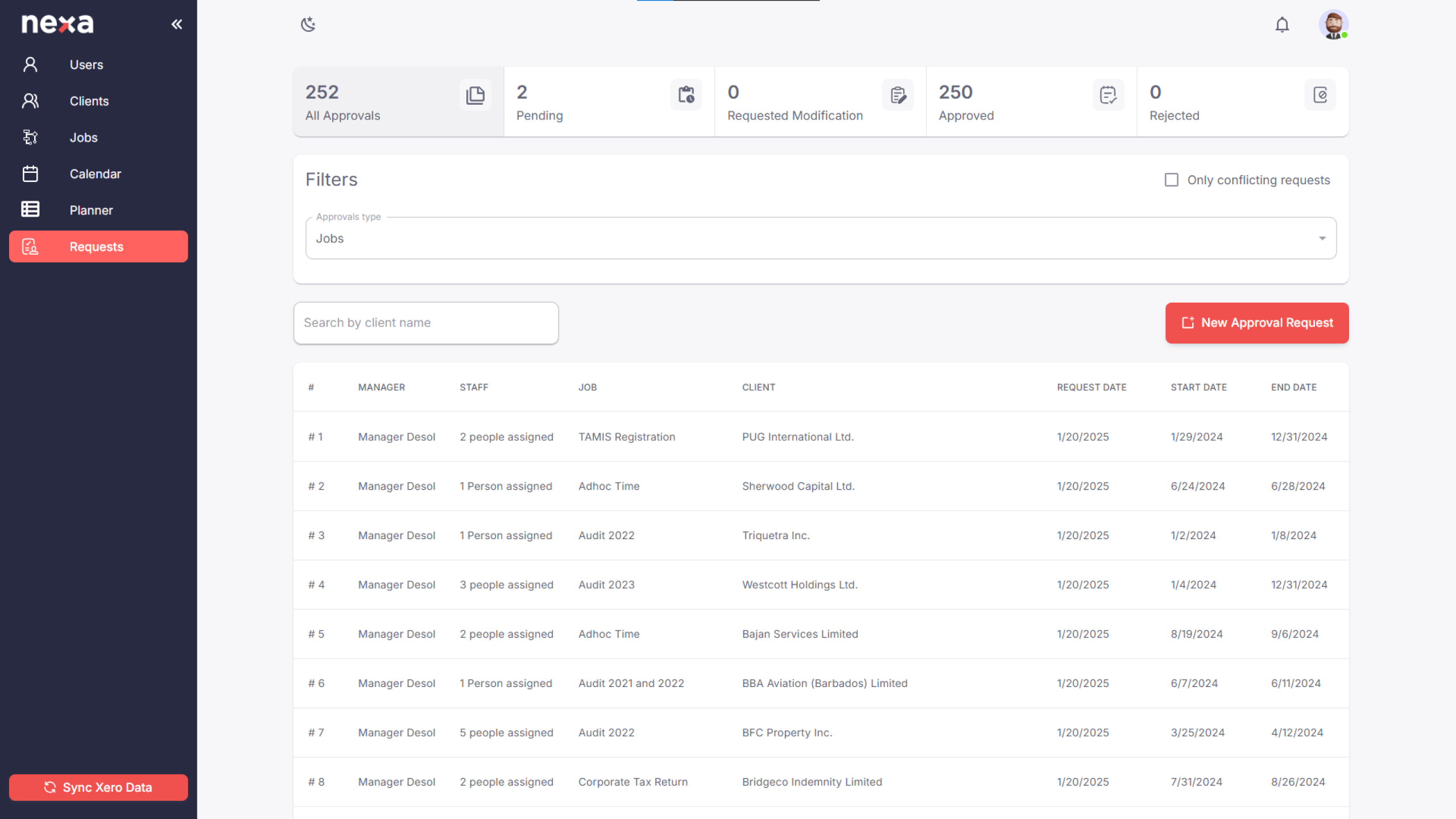Introduction
The client, a professional services firm focused on consulting and financial solutions, encountered difficulties in managing internal processes such as staff scheduling, job approvals, and holiday tracking. Although they utilized Xero Practice Manager for job management, they lacked a cohesive system to streamline these internal operations. The goal was to create a centralized platform integrated with Xero, offering dedicated modules for staff request approvals, holiday management, performance monitoring, and engagement scheduling.
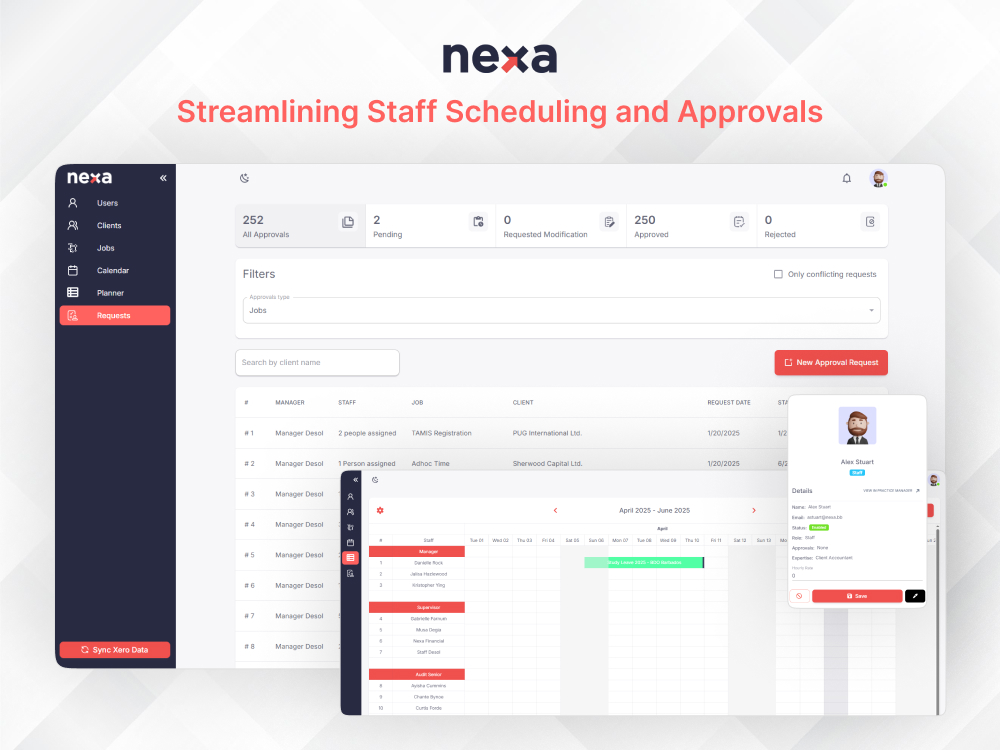
Application Details
The project was divided into structured milestones to ensure smooth development and timely delivery. Each milestone focused on critical modules designed to improve operational efficiency and ensure better visibility and management of human resources.
-
Platform Development
The platform included role-based dashboards customized for partners, managers, and staff. These dashboards acted as control centers, offering real-time data on job allocations, approvals, and holiday requests. Secure user authentication was implemented with different access levels, allowing tailored views and action permissions for each user type. Integration with the Xero Practice Manager ensured seamless synchronization of staff profiles, client information, and jobs, forming the operational backbone of the platform.
-
Staff Request Approval Module
This module allowed managers to submit staff requests for jobs. The system checked for availability conflicts and sent notifications to approvers for approval or feedback. It eliminated the manual email-based workflow by streamlining the entire request-to-approval pipeline with automation and a centralized interface. Approvers could view, approve, or reject requests directly from their dashboard.

-
Notification and Calendar Integration
A robust notification system informed all users about requests and approvals. A dynamic calendar displayed all approved jobs and holidays, supporting multiple views (weekly, monthly, quarterly) to help with planning and coordination.
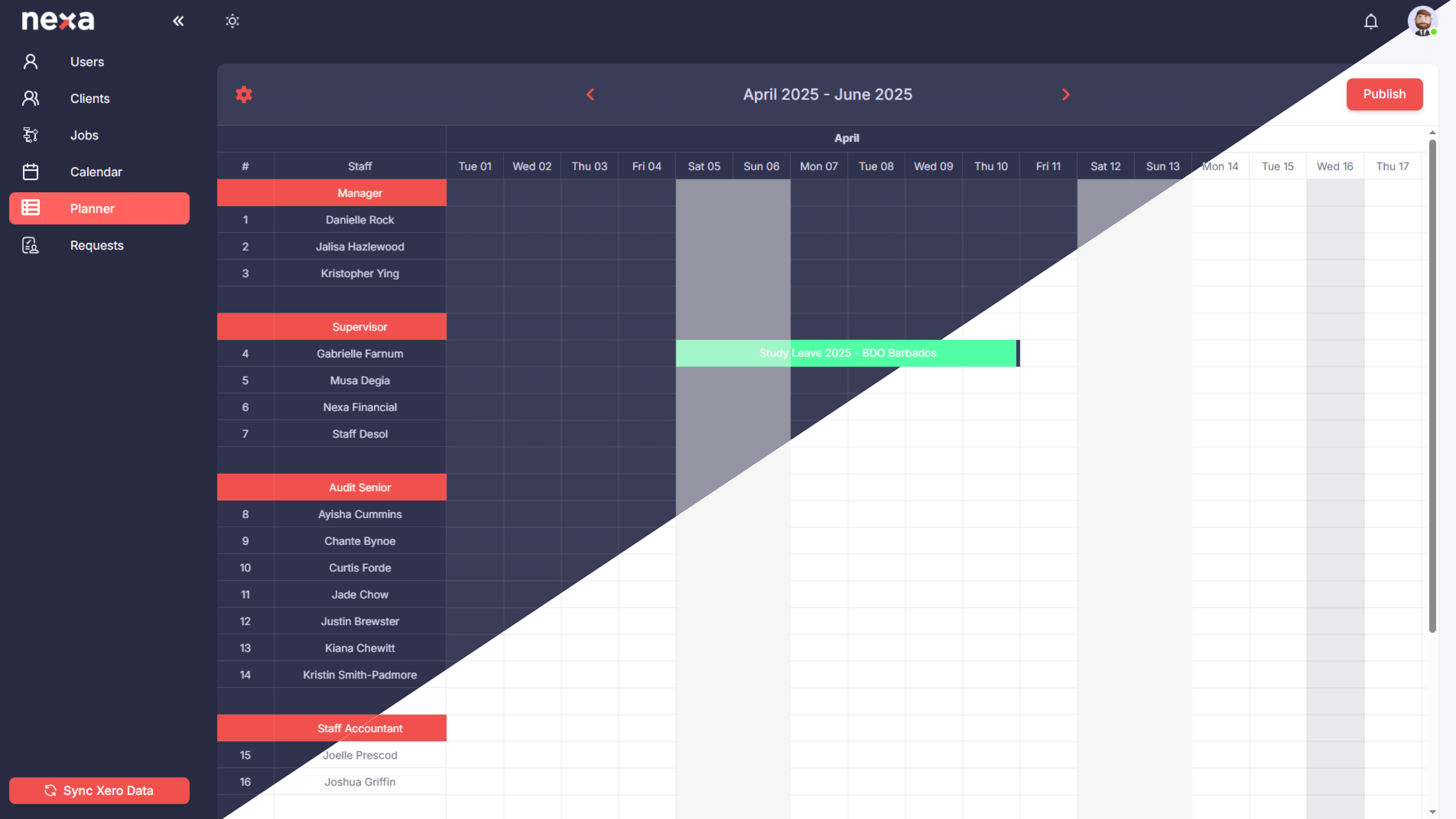
-
Holiday Management
The holiday module enabled staff to request time off through a user-friendly interface. Managers could view overlapping requests and approve or reject them accordingly. Public holidays and weekends were automatically recognized to avoid scheduling conflicts. All holiday data was centralized for easy access and management.

-
Jobs and Holidays Planner
The planner is an intuitive, calendar-based tool for managing staff jobs and holidays, featuring drag-and-drop functionality for easy scheduling. Users can filter views to see only their own tasks or those of other team members using radio buttons and can switch between current and previous years to access or review job history. This makes job planning, updating, and tracking efficient and user-friendly.
Technical Implementations
Backend: Node.js, Express
Node.js and Express were used for scalable backend operations, handling concurrent workflows such as staff request processing and real-time notifications efficiently.
Frontend: Next.js
The frontend was developed using Next.js for fast rendering and a dynamic user experience. React components ensured a modular design, facilitating ongoing feature updates and UI enhancements. Next.js has become the de facto standard for modern frontend development due to its hybrid rendering capabilities, out-of-the-box performance optimization, and seamless integration with React. Its built-in routing, API support, and server-side rendering help reduce load times and improve SEO. The robust community support and regular feature updates make it a reliable choice for scalable production-ready applications.
Database: MongoDB
MongoDB was selected for its flexibility and scalability, enabling quick schema adjustments and efficient management of diverse data types such as job logs, holiday requests, and performance evaluations.
Implementation Challenges
-
Multi-Job Conflict Resolution
Ensuring accurate availability checks across overlapping job schedules required the development of a real-time conflict detection engine. This was managed using asynchronous queues and intelligent lookups to prevent double bookings.

-
Role-Based Access Control
Complex workflows across various roles necessitated a detailed access control system. This was implemented using a permission matrix to manage who could view, edit, approve, or evaluate specific modules.
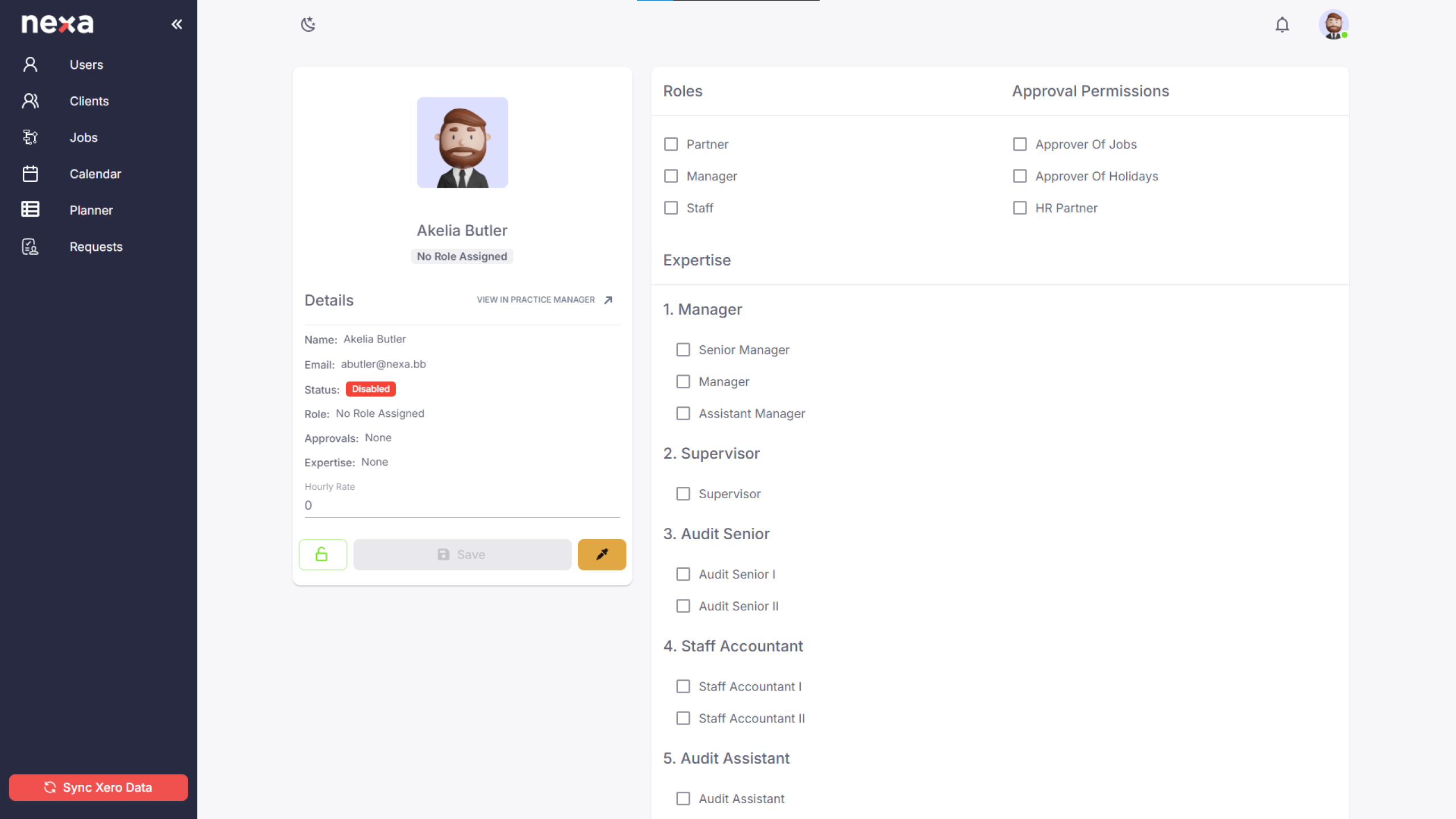
-
Bulk Data Imports and Renewals
At year-end, bulk job renewals needed to be managed without data duplication or loss. Custom scripts and backup logic ensured safe transitions between years while preserving job history and staff associations.

-
Xero API Data Fetching Delay
The integration with Xero Practice Manager occasionally encountered data fetching delays, which hindered real-time updates and affected the platform’s responsiveness. To address this, caching mechanisms were implemented to store frequently accessed data, significantly improving data retrieval speed and ensuring smoother user experiences.
Conclusion
The centralized staff management platform significantly improved the client’s internal workflows by integrating with Xero and automating key processes. With features like dynamic calendars, automated renewals, real-time notifications, and performance tracking, the system reduced manual overhead, improved scheduling accuracy, and enabled better resource planning. The firm now operates with greater efficiency, transparency, and scalability.
